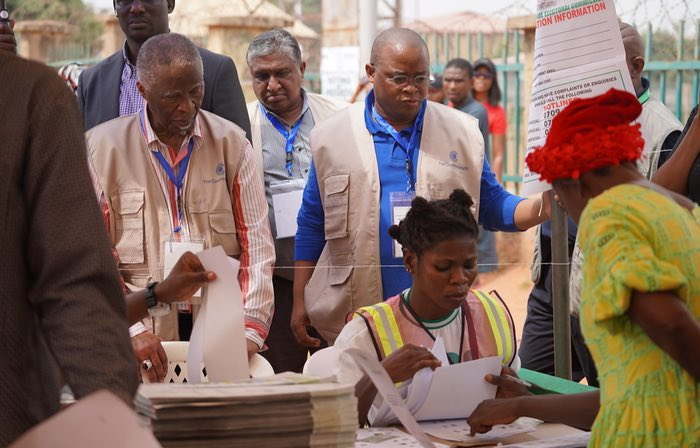
The Commonwealth Observer Group (COG) that was convened to observe Nigeria’s 2023 Presidential and National Assembly elections has released its final report. The report, which has been officially received by the Nigerian government, detailed the group’s observations and identified several areas where the polling process can be improved.
The independent and multi-disciplinary Commonwealth Observer Group team was deployed by the Commonwealth Secretary-General, the Rt Hon Patricia Scotland KC.
The COG arrived in Abuja on 18 February 2023, headed by former president of South Africa, HE Thabo Mbeki, and was supported throughout its mission by a team from the Commonwealth Secretariat.
The report said the vibrancy of Nigeria’s political landscape and the quality of its civil society are the country’s biggest strengths. It noted that more than 4,500 citizen observers were carrying out parallel vote tabulation and data clerking for situation rooms organised by Yiaga Africa and other within civil society organisations on election day. The report also commended the country’s young people for their active and valuable participation within civil society organisations.
However, the report cited a number of significant shortcomings, which detracted from the overall credibility, transparency and inclusivity of the elections. These included the failures of the Bimodal Voter Accreditation System (BVAS) devices and the INEC Results Viewing (IReV) portal on, and after, election day.
Although the new Electoral Act 2022 represented a significant step forward, the report said Nigeria could benefit from further institutional and legal reform on issues such as campaign finance, electoral offences and greater inclusion of marginalised groups.
The group also recommended that state-owned and private media houses should be held to the standards contained in the Professional Code of Ethics, the Nigerian Media Code of Election Coverage and the Independent National Electoral Commission’s Media Guidelines. This would improve impartiality and equitable coverage for all political parties and candidates during future campaigns. The report noted that it is crucial that media-related violations are penalised expeditiously and impartially.
The COG report reiterated recommendations, which were also made in 2019, to address the concerning lack of women’s political representation. Among the suggestions was that the National Assembly should revisit the previously tabled bills on seat quotas. It also recommended other temporary special measures, as referenced in the National Gender Policy, with a view to passing such legislation in the Parliament.
The Commonwealth Secretary-General noted the enhancements to the electoral process but also urged additional reforms.
She said:
“Though there has been some improvement in certain areas from the COG’s 2019 report, I hope the relevant stakeholders will continue to build on these improvements, as well as the other recommendations in the country’s ongoing journey of democratic consolidation and electoral reform to benefit the people of Nigeria.
“I encourage Nigeria to establish its home-grown mechanisms, to review and take forward recommendations made by this COG and, where possible, reach out to the Secretariat for support in the implementation of some of these recommendations.”
She also thanked the Independent National Electoral Commission (INEC) for the invitation to observe the 2023 election.
The COG’s report, which was drafted in-country, was finalised and approved by the Chairperson and observers in the weeks following their departure from Nigeria. The report provides a comprehensive assessment of the entire electoral process – before, during and after the polls and builds on the initial findings of the preliminary statement that was issued shortly after the elections. (End)
